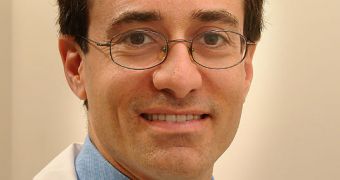Investigators based at the University of California in Los Angeles (UCLA) Jonsson Comprehensive Cancer Center (JCCC) say that prostate cancer patients ate low-fat diets between four and six weeks before having their prostate removed exhibited lower cancer cell growth rates than their peers.
The study was meant to compare the effects of Western and low-fat diets on cancer cell development. Traditionally, Western diets are very high in fat. This has a host of negative side-effects on people, as such diets set the stage for the development of a wide array of medical conditions.
During the same investigation, the team was also able to uncover that cell membranes in the bodies of prostate cancer patients who consumed diets low on fat and rich in fish oil tended to exhibit a significant change from the norm. This applied to both health and cancer cells.
The diets apparently allowed the membranes to store increased amounts of omega-3 fatty acids, which are derived from fish oil. Elevated concentrations of omega-6 fatty acids were found, and experts hypothesize that these were produced as a result of eating corn oil.
Though more studies are needed to study the exact effects these acids have on cellular biology, experts tend to agree that the consequences are positive. The first author of the new study was JCCC research scientist Dr William Aronson.
When the team harvested blood samples from patient groups who ate one of two diets, they determined that those who consumed lower amounts of fat and more fish oil exhibited slower cancer cell growth. The same effect was not found in those who ate diets high in fat.
“The finding that the low-fat, fish oil diet reduced the number of rapidly dividing cells in the prostate cancer tissue is important because the rate at which the cells are dividing can be predictive of future cancer progression,” Aronson explains.
“The lower the rate of proliferation, the lesser the chances that the cancer will spread outside the prostate, where it is much harder to treat,” he explains. At the same time, the risk of cancer cells breaking away and attacking other organs (metastasis) decreases as well.
Details of the study appear in the October 25 issue of the American Association for Cancer Research's (AACR) peer-reviewed scientific journal Cancer Prevention Research. Scientists analyzed blood samples both before and after the low-fat diet began.
“You truly are what you eat. Based on our animal studies, we were hopeful that we would see the same effects in humans,” adds the team leader, who is the chief of urologic oncology at the West Los Angeles Veterans Affairs Medical Center, and a clinical professor of urology at UCLA.
“We are extremely pleased about our findings, which suggest that by altering the diet, we may favorably affect the biology of prostate cancer,” Aronson concludes. He adds that the research was funded by National Cancer Institute, the Department of Veterans Affairs and the Ruby Family Foundation, among others.

 14 DAY TRIAL //
14 DAY TRIAL //